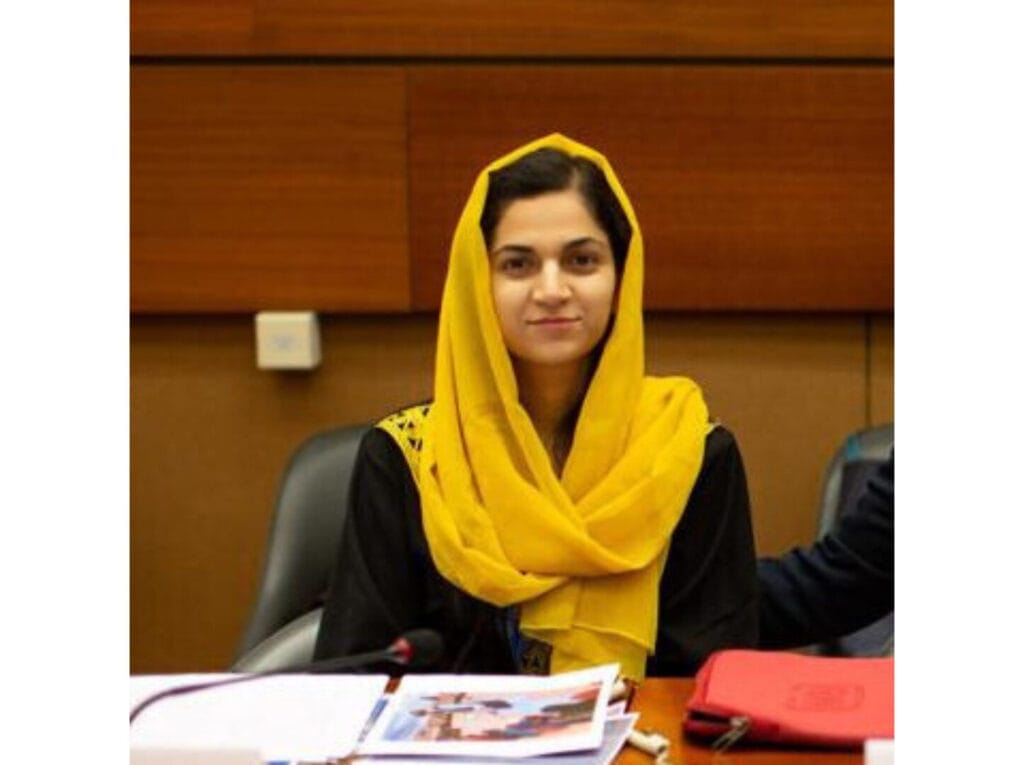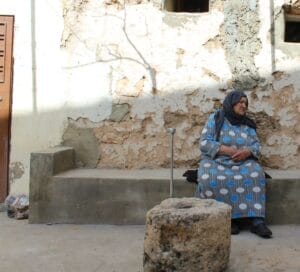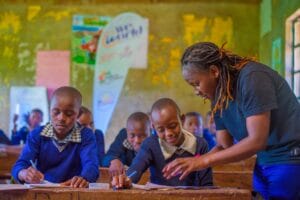
Parasto Hakim is an Afghan activist dedicated to championing women’s and girl’s rights and access to education in Afghanistan. She leads SRAK, a covert network of schools that provides education to girls across the country, even amidst significant challenges.
Parasto Hakim has been vocal in her criticism of the silence from the International Community and particularly criticising the Taliban’s oppressive policies. This outspoken stance forced her to leave Afghanistan, but her advocacy continues on the global stage. She firmly believes that education is a fundamental human right, not a privilege, and tirelessly highlights the devastating impact of denying Afghan girls their right to learn. In recognition of her relentless efforts, she was nominated for the Sakharov Prize in 2023.
Through her unwavering efforts, Parasto Hakim remains committed to securing a future where Afghan women and girls can pursue education and personal growth without fear or limitation. Her dedication stems from her own childhood in Afghanistan, where she recalls the harsh realities of her schooling. "When I was a child, we sat on the ground in a tent at school, barely protected from the cold winter and snow. On days when I couldn’t hold my pen to write the answers to the exam questions, I promised myself that I would do something to ensure the next generation wouldn’t face the same hardships," she reflects.
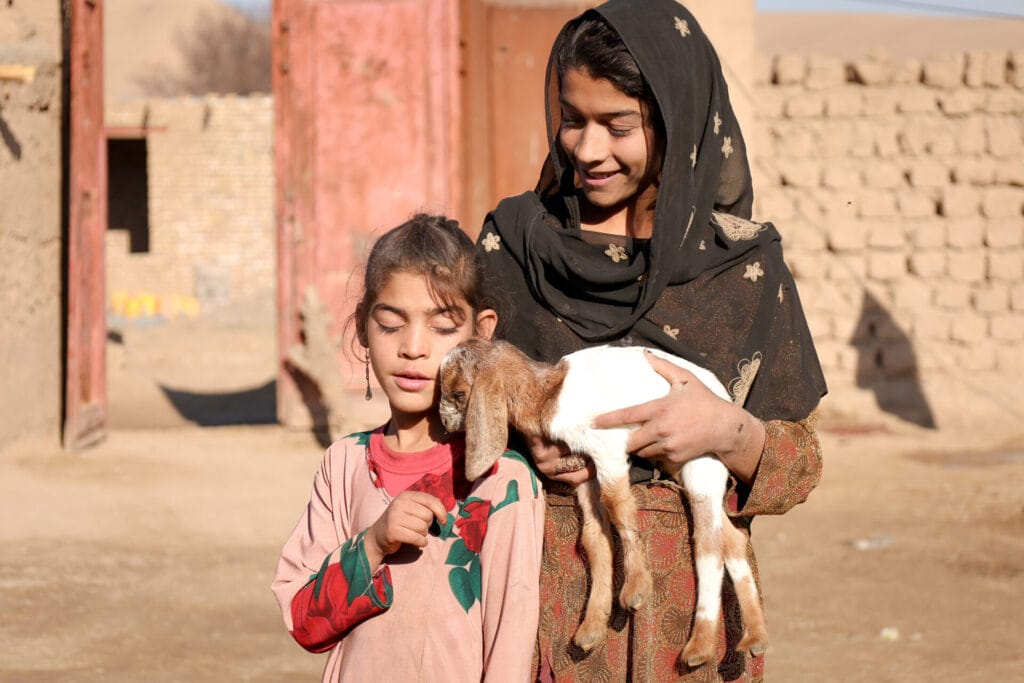
After completing her education, Parasto began addressing the systemic issues within Afghanistan's education system.
In 2021, following the collapse of the Afghan government, she took more decisive steps by establishing SRAK, an organisation named after the Pashto phrase for "the first light of the morning." SRAK began with a single secret school for girls, but Parasto's vision and the eagerness of the girls to study allowed the organisation to grow rapidly. “Now we have expanded to 15 schools across Afghanistan, educating 2,000 girls, employing 31 teachers, and providing an online university for 700 female students after the Taliban banned universities for girls. We also have a range of skill-building programmes for these girls in the field to empower them so they can earn money from home. SRAK also facilitates education for women who were deprived of education in 1996 when the Taliban took power for the first time" she proudly shares".
Parasto’s mission goes beyond simply providing education—it’s about creating systemic change.
"In the wake of the government’s collapse, I felt responsible to use the education I had received, as my country had invested in me for over 20 years. I wanted to make a difference," she says. Her experiences growing up in Afghanistan’s broken education system have motivated her to challenge the status quo. "I witnessed the lack of resources and quality in the schools, and I knew I had to do something to change it."
Through SRAK, Parasto and her team travelled across Afghanistan, often in secret, to establish schools in communities where girls have been denied the right to learn. Despite the dangers, she drew strength from the hope she saw in the faces of the girls and their families. "I saw their eagerness to learn, and that kept me going," she says.
Parasto’s decision to leave Afghanistan was one of the hardest choices she’s ever made.
Her outspoken advocacy put her at odds with the Taliban, who viewed her as a threat. "To make education accessible to every girl in Afghanistan, I had to speak out. It was essential to show the world that Afghan women don’t agree with the Taliban’s policies, and that the girls themselves refuse to be labelled victims," she explains. However, this work put both her and her family at great risk, leading to repeated threats and, eventually, her evacuation. "I left behind my family, students, and dreams," she reflects, acknowledging the trauma of leaving so abruptly. "But I knew I had to keep going for those who were relying on me."
Even after her departure, Parasto felt the emotional weight of being separated from her students and team. "I didn’t tell anyone I was leaving. I couldn’t bear to see their reaction. I was more than just a teacher to them; I was their support," she says. Despite the emotional strain, she found new opportunities to expand SRAK’s reach, leveraging resources unavailable to her in Afghanistan.
Her advocacy continues, with daily communication with her team and students back home.
Parasto’s message to the world is clear: "Everyone deserves access to their basic human rights without having to beg or negotiate for them. No one has the right to dictate another person’s basic rights."
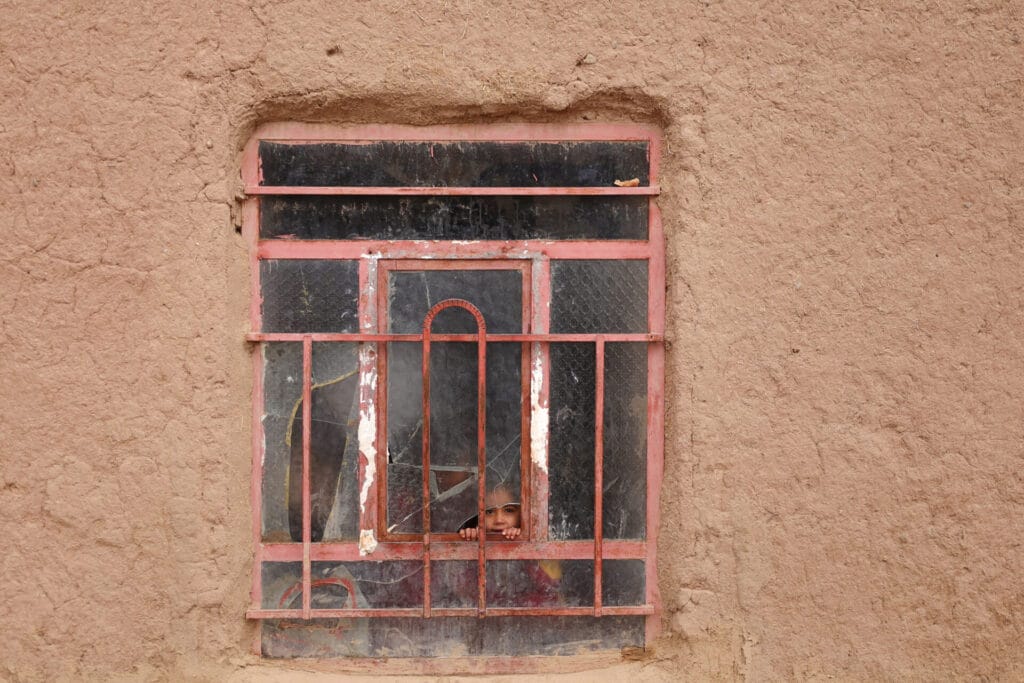
Reflecting on the challenges she has faced since leaving Afghanistan, Parasto highlights the struggle to raise awareness and mobilise support for Afghan women and girls: "After the collapse of the government in 2021, I thought many people around the world—those who understand human values and human rights—would stand with us, as they have fought for these causes before. But at the time, we were too consumed with fighting to stop and see who was actually there for us. When I left the country, I realised that in August 2021, the whole world had left us behind. We were alone in this fight against a group trying to normalise gender persecution. While we had platforms to speak about the ongoing situation in Afghanistan, it was not as much as we had hoped for. We were in pain, and being a direct victim of gender persecution is no joke—yet it felt like the world was not taking it seriously. Now, after three years of suffering, we finally have an arrest warrant for the leader of the Taliban issued by the International Criminal Court. These actions should have been taken in 2021 when girls were first banned from schools. Still, we admire these efforts, even if delayed. Many Afghan advocates who left the country faced immense challenges. Immigration procedures prevented many from travelling, silencing their voices as representatives of the women still inside Afghanistan. Worse, Afghan women who have continued to advocate for women’s rights—both inside the country and in exile—have been attacked and threatened by the Taliban."
She also highlights the resilience of Afghan women. "When our schools were banned, we established secret ones. When our universities were closed, we created online universities. When our work was restricted, we built businesses through secret channels." However, this resilience comes at a great cost. "Many women have been detained and tortured by the Taliban for their activism, and their families have suffered too."
Parasto is also determined to challenge the stereotypes surrounding Afghan women.
"When I first left the country, people were shocked by my fluent English. It shows how underestimated Afghan women are," she says. "We were born and raised to be leaders, not followers." She urges the world to stop listening to the Taliban’s narrative and recognise Afghan women as the leaders they truly are.
She ends with a powerful plea to the international community: "The silence of the international community has led to girls being sold, forced into early marriages, and subjected to unbearable trauma. This fight is not just for women in Afghanistan; it’s for human rights worldwide."
Parasto’s call to action is clear: "The world must stand in solidarity with Afghan women. The Organisation of Islamic Cooperation should condemn the Taliban’s policies, and international organisations must hold the Taliban accountable. Gender persecution must be treated as a crime against humanity. Politicians must make wise decisions to prevent further suffering. The fight for human rights is not limited to Afghanistan—it is a global struggle."

